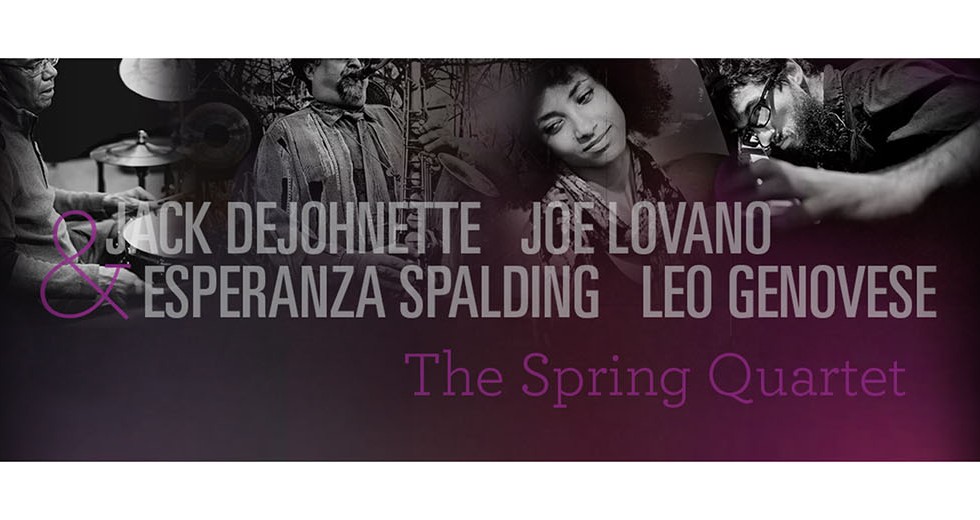
Every generation has its jazz heroes, and it’s always thrilling listening to two major forces in the art form appearing together. No one will argue about the musical significance of drummer Jack DeJohnette or tenor saxophonist Joe Lovano, but having them in the same airspace, making music together, is one of those wonderful occurrences that no jazz lover should miss.
Performing as the Spring Quartet, DeJohnette amd Lovano will be joined by bassist Esperanza Spalding and Argentinean pianist Leo Genovese in concert Feb. 15 as part of the Symphony Center Presents Jazz Series. Opening for this rare convergence of innovative talent is vocalist Gregory Porter, whose “Liquid Spirit” (Blue Note) just won this year’s Grammy for best jazz vocals disc.
+++
If one were to make a list of the 10 greatest jazz drummers of all time, Jack DeJohnette would certainly be on it. But he’s way more than a drummer. Percussionist, pianist and composer DeJohnette grew up on the South Side of Chicago, early on studied classical piano and took up drums in high school. Soon enough he was busy with gigs of every kind – R&B, free jazz – you name it.
Along with his professional performing, he divided his practice time between drums and piano – four hours a day on drums and an equal amount of time and effort devoted to the piano. While still in Chicago, he became involved with the highly regarded Association for the Advancement of Creative Musicians. He attended the American Conservatory of Music, which at the time occupied several floors of the Fine Arts building, just a few blocks south of Orchestra Hall. In 1966, he left Chicago for New York, where he became a member of the Charles Lloyd Quartet. The hugely successful ensemble featured Lloyd on saxophone, Keith Jarrett on piano and Ron McClure on bass.
DeJohnette replaced Tony Williams in the legendary Miles Davis band; he appears on the Miles Davis game-changing album “Bitches Brew” (1970). At one time or another, he’s collaborated with nearly every major jazz artist, including John Coltrane, Ornette Coleman, Stan Getz and Herbie Hancock. In 2012, he was awarded a National Endowment for the Arts Jazz Masters Fellowship.
+++
Since the 1930s, jazz has seen an astounding array of tenor saxophonists who have given shape and direction to the art form. Coleman Hawkins, Lester Young, Ben Webster, and John Coltrane are just a few. In the present, there’s Joe Lovano.
Lovano is hard to pigeonhole. He’s equally at home with hard bop, world music, free jazz – just about anything. He has an enormous curiosity about music of other cultures, has recorded with a wide range of ensembles and is forever throwing himself into one experiment or another. (He’s been at all this for five decades).
Born in Cleveland in 1952, Lovano grew up playing in his father’s bands. Tenorman Tony “Big T” Lovano taught his son the intricacies of finding work and what to do once it’s found.
After graduating from high school in 1971, he headed for Boston’s Berklee School of Music. Among his earliest influences were John Coltrane and Sonny Stitt. At Berklee, he studied with Gary Burton and Herb Pomeroy.
In 1976 through ’79, he toured with Woody Herman, after which he moved to New York and joined that petri dish of jazz ensembles, the Mel Lewis Big Band. Lovano has appeared in a bass-less trio with drummer Paul Motion and guitarist Bill Frisell, fronted a four-man sax section for his nonet album, “52nd Street Themes” and even recorded an album of Caruso favorites.
The man is a tireless innovator, an artist the New York Times calls “one of the greatest musicians in jazz history.”